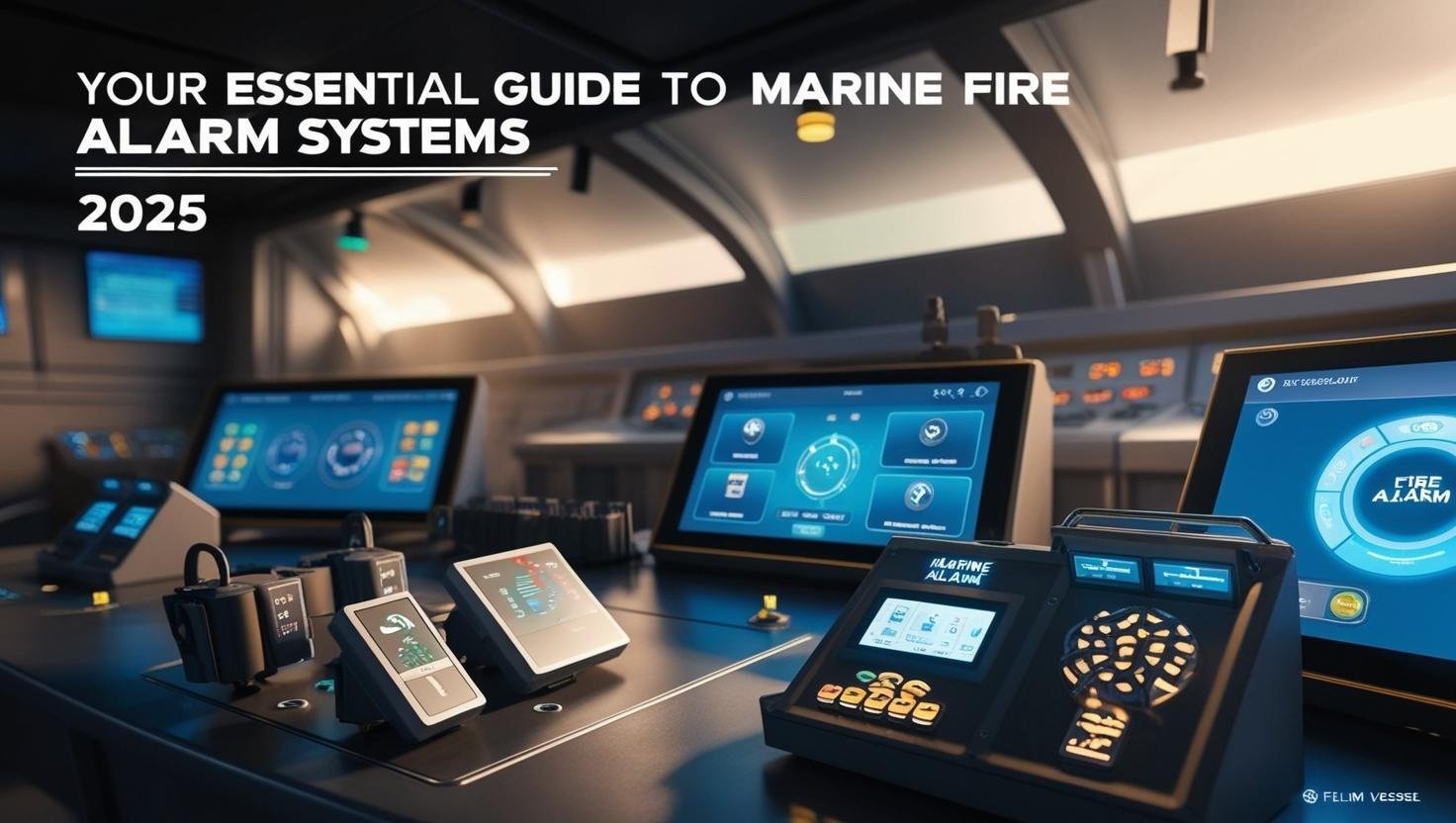Your Essential Guide to Marine Fire Alarm Systems in 2025

In marine environments, where risks are high and help is often hours away, having the right marine fire alarm system is not a choice—it’s a necessity. The first line of defense onboard any vessel is a reliable detection and response system like the fire alarm control model series 8000, which is specially designed for marine and offshore applications.
Let’s explore the importance of marine fire detection systems, the latest tech innovations, and what solutions are leading the market in 2025.
Why Marine Fire Alarm Systems Matter More Than Ever
Marine fires are often catastrophic. They spread quickly due to confined spaces, flammable cargo, and limited escape routes. That’s why every ship, from fishing trawlers to offshore oil rigs, must have a specialized fire detection system tailored to marine conditions.
Key benefits include:
- Rapid detection in engine rooms, galley, and electrical panels.
- Minimal false alarms despite constant ship motion and humidity.
- Integration with suppression systems and emergency alarms.
Latest Market Trends & Stats
The marine fire safety system market is experiencing rapid growth driven by regulatory mandates and the push toward digital ship automation.
- Market Size: Valued at USD 86.05 billion in 2023, expected to reach USD 159.1 billion by 2032 at a CAGR of 6.1%.
- Tech Shift: Transition toward AI-powered detectors, addressable fire panels, and IoT-integrated systems.
- Compliance Pressure: SOLAS and IMO regulations now require robust fire detection and suppression capabilities onboard.
Key Features of Modern Marine Fire Alarm Systems
- Multi-Zone Addressable Panels: Allow detection by individual location for precise action.
- Triple Sensor Technology: Detects heat, smoke, and gas for early, accurate alerts.
- Rugged Design: Resists salt corrosion, vibration, and high moisture levels.
- Remote Monitoring: Allows data tracking and alarm control via satellite or cloud.
Installation & Maintenance Best Practices
- Test alarms monthly, and inspect detectors quarterly.
- Replace or recalibrate sensors annually for compliance.
- For offshore rigs and drilling vessels, working with a certified bop spare parts supplier in India ensures all related fire protection and pressure control systems operate smoothly under critical conditions.
FAQs on Marine Fire Alarm Systems
Q1: What is a marine fire alarm system?
A marine fire alarm system is an onboard setup of detectors, alarms, and control units designed to identify and alert personnel to fires at sea.
Q2: What makes marine systems different from regular alarms?
They’re engineered to handle humidity, salt air, and ship movement, unlike land-based alarms.
Q3: Are marine fire alarm systems mandatory?
Yes. Under SOLAS, most vessels must install certified fire detection and suppression systems.
Q4: Can these systems detect both heat and smoke?
Yes. Many now offer dual or triple-sensor technology for broader coverage.
Q5: How do I choose the right fire alarm system for my vessel?
Consider vessel size, engine type, regulatory needs, and budget. Consult an expert supplier or marine safety consultant.
Final Thoughts
Marine fires are rare, but when they happen, they escalate fast. In 2025, it’s critical to invest in high-performing, regulation-compliant marine fire alarm systems to ensure passenger safety, protect cargo, and avoid penalties.
With robust options like the fire alarm control model series 8000 and the support of a reliable bop spare parts supplier in India, shipowners are better equipped than ever to manage onboard fire risks.
